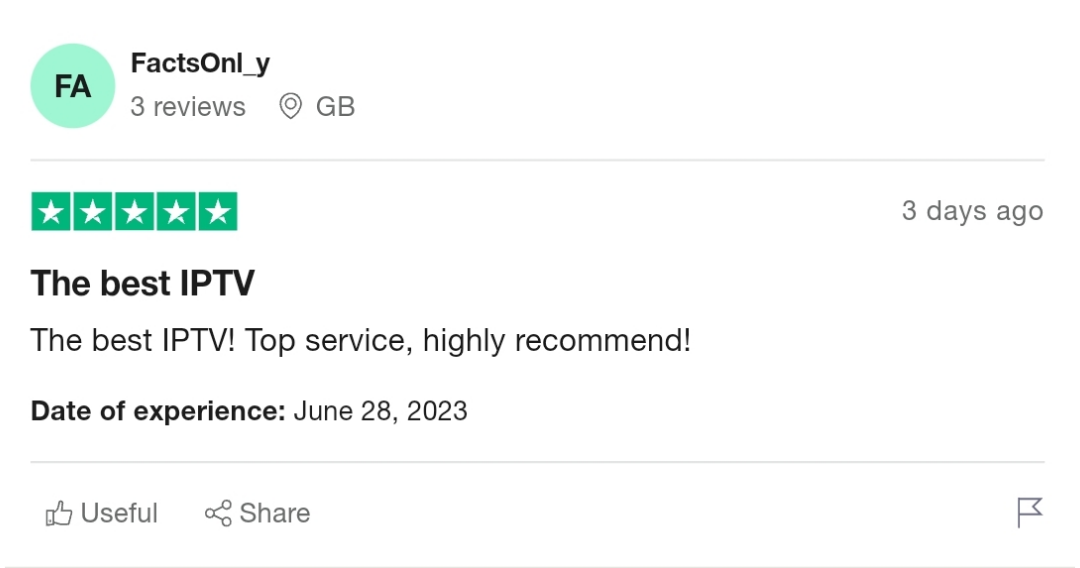Introduction “Is IPTV Legal in Canada”.
In the age of digital streaming, IPTV (Internet Protocol Television) has become a popular alternative to traditional cable and satellite TV. Offering a wide range of channels and on-demand content at competitive prices, it’s no wonder many Canadians are turning to IPTV. But amidst this growing trend, a crucial question arises: Is IPTV legal in Canada?
In this comprehensive guide, we will delve into the legality of IPTV in Canada, examining the regulatory framework, the risks involved, and how to ensure you stay on the right side of the law. We’ll also explore what makes IPTV appealing and provide practical advice for consumers looking to use these services safely.
Understanding IPTV
What is IPTV?
IPTV, or Internet Protocol Television, is a system where television services are delivered using the Internet protocol suite over a packet-switched network such as the Internet, instead of being delivered through traditional terrestrial, satellite signal, and cable television formats. IPTV services can be classified into three main categories:
- Live Television: Streaming live TV channels as they are broadcast.
- Time-Shifted Media: Allowing viewers to watch previously aired shows at their convenience.
- Video on Demand (VOD): Providing a catalog of movies and TV shows that users can watch at any time.

How Does IPTV Work?
IPTV works by converting traditional broadcast signals into digital data packets that are then transmitted over the internet. These packets are received by a set-top box or an app on smart devices, which decodes the data and displays the content on your TV screen. This process allows for a more flexible and interactive viewing experience compared to traditional TV services.
The Legal Landscape of IPTV in Canada
Canadian Broadcasting Regulations “Is IPTV Legal in Canada”?
In Canada, the broadcasting industry is regulated by the Canadian Radio-television and Telecommunications Commission (CRTC). The CRTC is responsible for ensuring that all broadcasting services comply with Canadian laws and regulations, including those related to content distribution, licensing, and copyright protection.
IPTV services, like any other broadcasting service, must adhere to these regulations. This means that legitimate IPTV providers must obtain the necessary licenses to distribute TV channels and other content legally.
Copyright Laws and IPTV
Copyright infringement is a significant concern when it comes to IPTV. Unauthorized IPTV services often provide access to copyrighted content without obtaining proper licenses, which is illegal. In Canada, the Copyright Act protects the rights of content creators and distributors, making it illegal to distribute or consume copyrighted material without permission.
The question is IPTV Legal in Canada ?
Using unlicensed IPTV services can lead to severe legal consequences, including fines and legal action. Therefore, it is crucial for consumers to ensure that the IPTV service they are using is fully licensed and compliant with Canadian copyright laws.
Risks of Using Illegal IPTV Services
Legal Consequences
One of the primary risks of using illegal IPTV services is the potential for legal repercussions. In Canada, both the providers and users of illegal IPTV services can face legal action. This includes hefty fines and, in some cases, criminal charges.
For example, in recent years, there have been several high-profile cases where Canadian authorities have cracked down on illegal IPTV operations, resulting in significant penalties for those involved. Users of these services have also faced legal threats and actions, highlighting the serious risks associated with accessing unauthorized content.
Quality and Reliability Issues
Illegal IPTV services often suffer from poor quality and reliability issues. These services may experience frequent buffering, low-resolution streams, and sudden outages. Because they operate without proper licensing and infrastructure, they cannot guarantee the same level of service as legitimate providers.
Additionally, illegal IPTV services are more likely to be shut down by authorities, leaving users without access to their paid content. This lack of stability and assurance makes illegal IPTV a risky investment for consumers.
“Is IPTV Legal in Canada”?
Security Risks
Using illegal IPTV services can also expose users to significant security risks. These services may require users to install third-party apps or software, which can contain malware, spyware, or other malicious code. This can lead to data breaches, identity theft, and other cybersecurity threats.
Legitimate IPTV services, on the other hand, invest in robust security measures to protect their users’ data and privacy. By choosing a licensed provider, consumers can reduce the risk of falling victim to cyber attacks.
How to Safely Use IPTV in Canada “Is IPTV Legal in Canada”.
Choosing a Legitimate IPTV Provider
To ensure you are using IPTV legally and safely in Canada, it is essential to choose a legitimate provider. Here are some tips to help you identify a licensed IPTV service:
- Check for Licensing Information: Legitimate IPTV providers will openly display their licensing information on their website or app. Look for details about their partnerships with content creators and distributors.
- Read Reviews and Ratings: Research the provider’s reputation by reading reviews and ratings from other users. Trusted sources like tech websites and forums can provide valuable insights into the quality and legitimacy of the service.
- Contact Customer Support: Reach out to the provider’s customer support team with any questions about their licensing and content offerings. A transparent and responsive support team is a good sign of a reputable provider.
Avoiding Red Flags
Be wary of IPTV services that exhibit the following red flags:
- Unrealistically Low Prices: If an IPTV service offers access to a vast array of channels and content at a fraction of the cost of legitimate providers, it is likely too good to be true.
- Lack of Licensing Information: If the provider does not provide clear information about their licensing status, it is a strong indication that they may be operating illegally.
- Poor Website or App Design: Legitimate providers invest in professional and user-friendly interfaces. A poorly designed website or app can be a sign of an untrustworthy service.

The Future of IPTV in Canada
Technological Advancements
As technology continues to evolve, so too will the IPTV landscape. Advances in internet speeds, streaming technology, and content delivery networks (CDNs) will enhance the quality and reliability of IPTV services. Consumers can expect smoother streaming experiences, higher resolutions, and more interactive features in the coming years.
Regulatory Changes
The regulatory environment for IPTV in Canada is also likely to evolve. The CRTC and other regulatory bodies may introduce new guidelines and policies to address the growing popularity of IPTV and ensure that all providers comply with Canadian laws. Staying informed about these changes will be crucial for both providers and consumers to remain compliant and avoid legal issues.
Conclusion
IPTV offers a modern and flexible way to consume television content, but it is essential to understand the legal implications and risks involved. In Canada, using licensed and legitimate IPTV services is the key to enjoying this technology safely and legally. By following the tips outlined in this guide, consumers can make informed decisions and avoid the pitfalls associated with illegal IPTV services.
Remember, the convenience and cost savings of IPTV should never come at the expense of legality and security. Choose wisely, stay informed, and enjoy the best that IPTV has to offer within the boundaries of the law.
References
- Canadian Radio-television and Telecommunications Commission (CRTC)
- Canadian Copyright Act
- IPTV: What is it and how does it work? – TechRadar
- The Risks of Using Illegal IPTV Services – Norton













